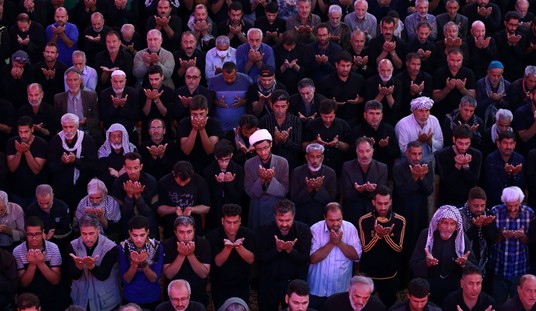WASHINGTON — President Obama will leave office without withdrawing U.S. troops from Afghanistan, as he vowed would happen by 2014, thanks to a Taliban resurgence and ISIS trying to muscle in on the territory.
The administration is extending the presence of U.S. forces in the country with a troop cap set at 8,448.
“Compared to the 100,000 troops we once had there, today, fewer than 10,000 remain. And compared to their previous mission, helping to lead the fight, our forces are now focused on two narrow missions: training and advising Afghan forces and supporting counterterrorist operations against the remnants of Al Qaida as well as other terrorist groups, including ISIL,” Obama said in a statement delivered from the Roosevelt Room at the White House.
“In short, even as we’ve maintained a relentless, you know, case against those who are threatening us, we are no longer engaged in a major ground war in Afghanistan. But even these narrow missions continue to be dangerous. Over the past year and a half, 38 Americans, military and civilian, have lost their lives in Afghanistan on behalf of our security, and we honor their sacrifice. We stand with their families in their grief and in their pride and we resolve to carry on the mission for which they gave their last full measure of devotion.”
Obama stressed that Afghan forces “remain in control of all the major population centers, provincial capitals, major transit routes and most district centers” despite Taliban attacks.
“As president and commander and chief, I’ve made it clear that I will not allow Afghanistan to be used as safe haven for terrorists to attack our nation again,” he said. “That’s why I constantly review our strategy with my national security team, including our commanders in Afghanistan. In all these reviews we’re guided by the facts, what’s happening on the ground, to determine what’s working and what needs to be changed.”
After a spring review, he said, the U.S. will not drop to 5,500 troops by the end of this year as planned but will maintain current levels “into next year through the end of my administration.”
“Also sends a message to the Taliban and all those who have opposed Afghanistan’s progress. You have now been waging war against the Afghan people for many years. You’ve been unable to prevail. Afghan security forces continue to grow stronger and the commitment of the international community, including the United States to Afghanistan and its people, will endure,” Obama said.
“I will say it again. The only way to end this conflict and to achieve a full drawdown of foreign forces from Afghanistan is through a lasting political settlement between the Afghan government and the Taliban. That’s the only way. That is why the United States will continue to strongly support an Afghan-led reconciliation process and why we call on all countries in the region to end safe havens for militants and terrorists.”
Even Afghan President Ashraf Ghani, who had supported such a reconciliation process, acknowledged in April that the Taliban are terrorists who keep bombing civilians and have no interest in reconciliation. The Taliban have also said they’re not interested and continue attacks.
“It has been continually my belief that it is up to Afghans to defend their country. Because we have emphasized training their capabilities, we’ve been able to end our major ground war there and bring 90 percent of our troops back home. But even as we work for peace, we have to deal with the realities of the world as it is. We can’t forget what’s at stake in Afghanistan. This is where al-Qaeda is trying to regroup, this is where ISIL continues to try to expand its presence,” Obama continued.
“If these terrorists succeed in regaining areas and camps where they can train and plot, they will attempt more attacks against us. We cannot allow that to happen. I will not allow that to happen.”
He added that keeping a force there will “honor the memory of all those who have made the ultimate sacrifice, including more than 2,200 American patriots who have given their lives in Afghanistan… let’s never forget the progress their service has made possible.”
House Armed Services Committee Chairman Mac Thornberry (R-Texas), though, said the troop cap was laughable “would be comical were its consequences not so tragic for our mission and military readiness.”
“It is time that the president level with the American people about what it will really take to achieve our goals in Afghanistan, and how much it will cost,” Thornberry said. “The truth is that many thousands more Americans are performing military functions in Afghanistan than even the current troop cap authorizes. The president refuses to pay for them, and his budget does not have room for the troops he is committing.”
“For all of the bluster about funding troops in harm’s way, it is the president who proposes to extend the vital mission without any resources behind it. The White House must submit a supplemental funding request to accommodate troop levels in Afghanistan immediately.”
Senate Armed Services Committee Chairman John McCain (R-Ariz.) said he welcomes Obama’s “decision to reverse his previous plan to drawdown U.S. forces in Afghanistan.”
“While I believe conditions on the ground warranted retaining the current force level, the decision to retain 8,400 U.S. troops in Afghanistan into next year is certainly preferable to cutting those forces by nearly half,” McCain said. “That said, when the president himself describes the security situation in Afghanistan as ‘precarious,’ it is difficult to discern any strategic rationale for withdrawing 1,400 U.S. troops by the end of the year.”
Sen. Lindsey Graham (R-S.C.), who spent the Fourth of July in Kabul at a barbecue with troops, tweeted: “Confident this is more political decision than military. Never heard anyone suggest 9,800 was too many or 8,400 was just right.”
“8.4K not a total disaster like 5.5K but it’s high-risk & unnecessary. Deteriorating conditions support keeping at least current level 9.8K,” Graham added.









Join the conversation as a VIP Member